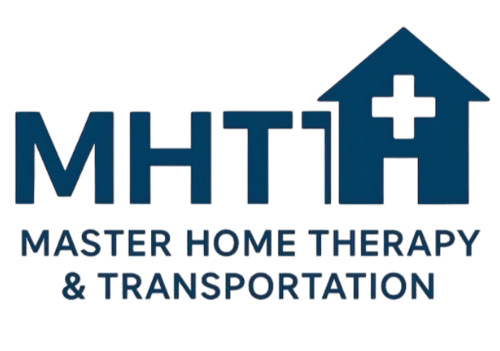Occupational Therapy
- Home
- Occupational Therapy
Holistic Recovery Solutions
How Occupational Therapy Supports Recovery
Occupational therapy plays a vital role in helping individuals recover from pain, injury, or disabling conditions. At Master Home Therapy, we focus on restoring essential life skills—offering long-term solutions that extend beyond physical healing and promote independence at home.

Treating Common Conditions Effectively:
Occupational therapy can address a wide range of conditions. We commonly support individuals managing:
- Arthritis
- Neurological disorders (e.g., stroke, Parkinson’s disease)
- Orthopedic injuries
- Chronic pain
- Spinal cord injury
- Traumatic brain injury
Our treatments focus on real-life activities like dressing, eating, and grooming—helping patients perform essential functions more safely and independently.
Our occupational therapists in Chicago, Orland Park, Oak Park, Downers Grove, Elmhurst, Lombard, and Tinley Park, IL are here to help patients regain skills and adopt strategies for daily tasks. This improves independence and enhances quality of life. We provide ergonomic assessments, body mechanics education, and adaptive equipment recommendations. At Master Home Therapy and Therapy, we are dedicated to empowering you to overcome physical limitations and live life to the fullest. Reach out today to learn how our occupational therapy services can help you reclaim your independence.
How Both Therapies Work Together
Physical and Occupational Therapy
While physical therapy focuses on improving movement and strength, occupational therapy helps individuals perform daily tasks safely and confidently. When used together, these therapies form a complete recovery strategy.
Understanding Physical Therapy
Physical therapy helps people improve physical abilities, especially after injury, illness, or age-related changes.
Therapists create personalized programs to reduce pain, improve movement, and restore function, such as regaining strength after surgery or managing arthritis.
It covers a wide range of needs.
Understanding Occupational Therapy
Occupational therapy helps people regain the ability to perform daily tasks through therapeutic activities. It focuses on physical recovery and enabling a fulfilling life.
For example, after a stroke, an occupational therapist helps relearn tasks like dressing, cooking, or driving. Both physical and occupational therapy work together to improve mobility and daily function.
Holistic Recovery Solutions
Benefits of Occupational Therapy Explained
At Master Home Therapy, we recognize the transformative impact that effective, personalized occupational therapy can have on daily life. Our skilled therapists are dedicated to restoring, improving, and maintaining your ability to perform essential activities through customized, patient-centered care.
It all begins with a comprehensive evaluation. Our experienced occupational therapists review your medical history and conduct specialized assessments to measure your functional abilities. This allows us to identify the root causes of challenges—whether they are physical, cognitive, psychosocial, or sensory—and develop a targeted plan for progress.
At Master Home Therapy, our occupational therapy interventions address a wide range of conditions, including stroke, arthritis, developmental disorders, physical injuries, and neurological issues. By applying targeted, evidence-based treatments, we help clients enhance their overall function, supporting greater independence and a better quality of life.
FAQs
Frequently Asked Questions
To meet Medicare requirements, the following criteria must be satisfied:
- The patient must be a Medicare beneficiary.
- The patient must be homebound, meaning leaving the home requires considerable and taxing effort.
- The skilled care must be medically necessary, as determined by the patient’s physician.
Many medical conditions that once required hospitalization can now be safely treated at home. Home care services offered may include but are not limited to:
Skilled Nursing:
- Observation and assessment of conditions
- Education for patients and families on disease processes
- Management and evaluation of care plans
- Medication education and management
- Dressing changes and wound care
- Catheter care and injections
- IV therapy and ostomy care
- Pain and diabetic management
- Nutritional support and home safety education
Assistance with Daily Living:
- Bathing, dressing, and transfers
- Light meal preparation and housekeeping
- Grocery shopping and medication reminders
- Laundry and companionship
- Escort to appointments, pet sitting/walking
- Live-in care and respite services
- Exercise therapy assistance
Your Next Steps…
Initial Call
After receiving your request, we’ll contact you to discuss your specific needs, walk you through our process, and collect essential information, including your doctor’s details and insurance coverage.
Insurance & Referral Confirmation
Our team will reach out to your doctor to secure the required order for care and verify your insurance benefits to confirm coverage. We take care of all the details, allowing you to focus on your health and recovery.
Treatment Plan & Scheduling
Once everything is confirmed, we’ll contact you to review your customized treatment plan and arrange your in-home appointment at a time that’s most convenient for you.
